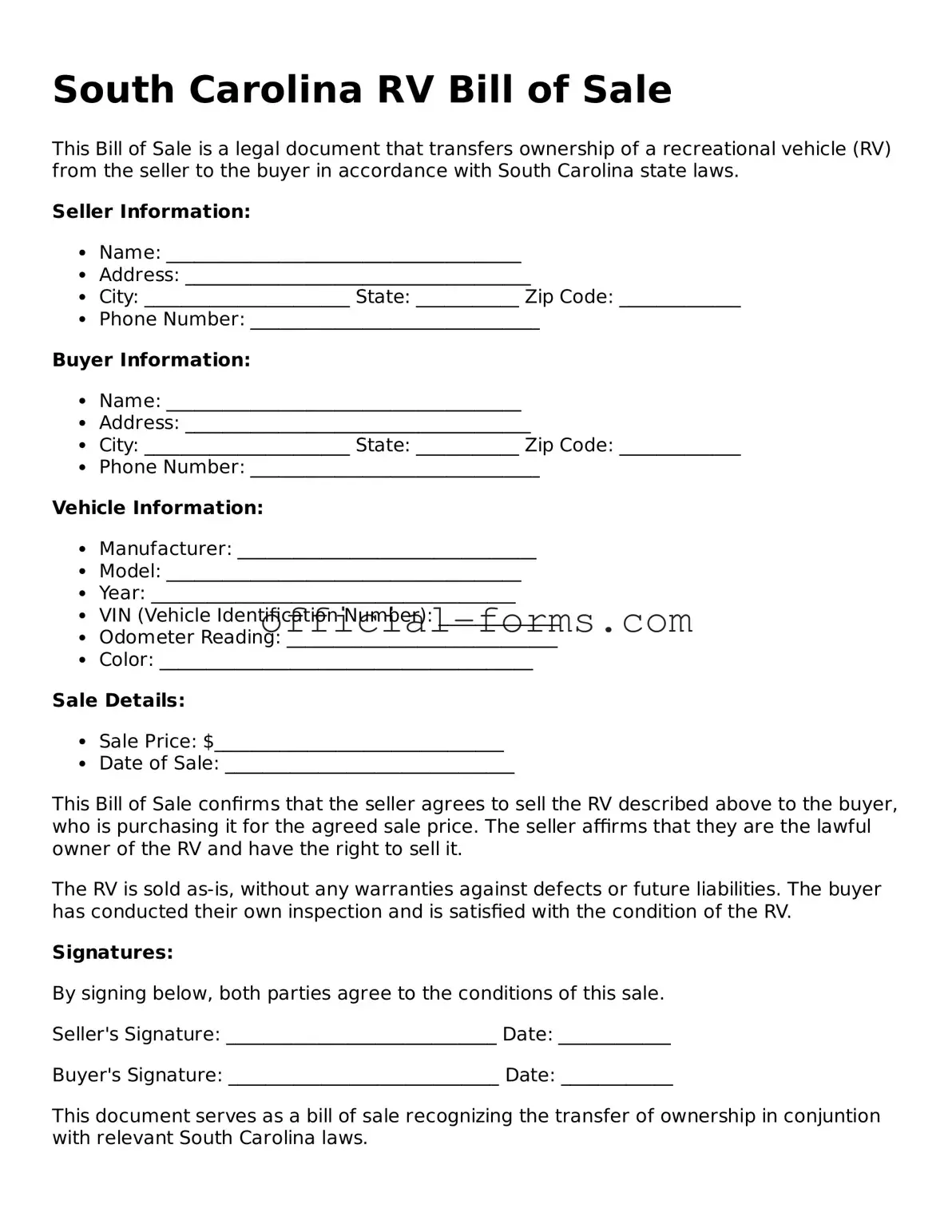Filling out the South Carolina RV Bill of Sale form can seem straightforward, but many people stumble over common mistakes. One frequent error is failing to provide accurate vehicle identification numbers (VIN). The VIN is crucial for identifying the specific RV being sold. A simple typo can lead to confusion and complications down the line.
Another common issue is neglecting to include the correct sale price. This figure is not just a number; it plays a role in determining taxes and fees. If the price is inaccurately reported, it can lead to potential disputes or even legal issues later on.
People often overlook the importance of signatures. Both the buyer and seller need to sign the form. Without these signatures, the document may not be considered valid. This oversight can delay the transfer of ownership and create unnecessary headaches.
Additionally, many individuals forget to date the document. A date is essential for establishing when the sale occurred. This information is important for both parties, especially if there are any future questions about the transaction.
Misunderstanding the requirements for notarization is another mistake. While notarization isn’t always necessary, certain situations may require it. Failing to check these requirements can lead to complications when registering the RV.
Some people mistakenly think that a verbal agreement is sufficient. However, a written bill of sale is essential for legal protection. Relying on a handshake can lead to misunderstandings and disputes later on.
Another frequent error is not keeping a copy of the completed bill of sale. Both the buyer and seller should retain a copy for their records. This document serves as proof of the transaction and can be useful for future reference.
Inaccurate information about the buyer or seller is also a common pitfall. It’s vital to ensure that names, addresses, and contact information are correct. Errors in this information can lead to complications if issues arise after the sale.
People sometimes forget to include any additional terms of the sale. If there are specific conditions or agreements, they should be clearly stated on the bill of sale. This clarity can help prevent misunderstandings between the parties involved.
Finally, failing to research local regulations can lead to problems. Each state has its own rules regarding RV sales, and South Carolina is no exception. Being unaware of these regulations can complicate the process and lead to potential legal issues.

